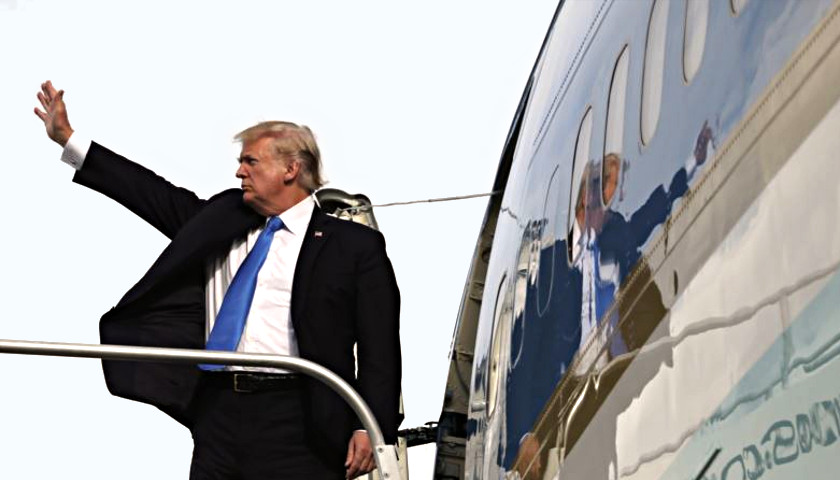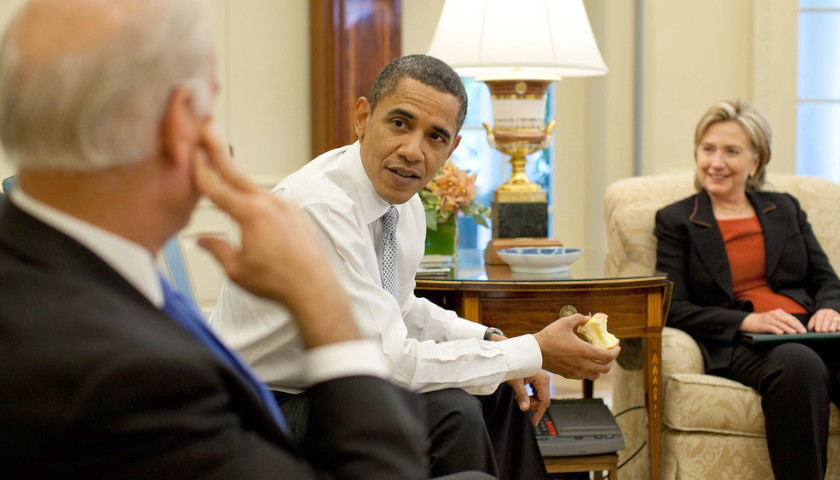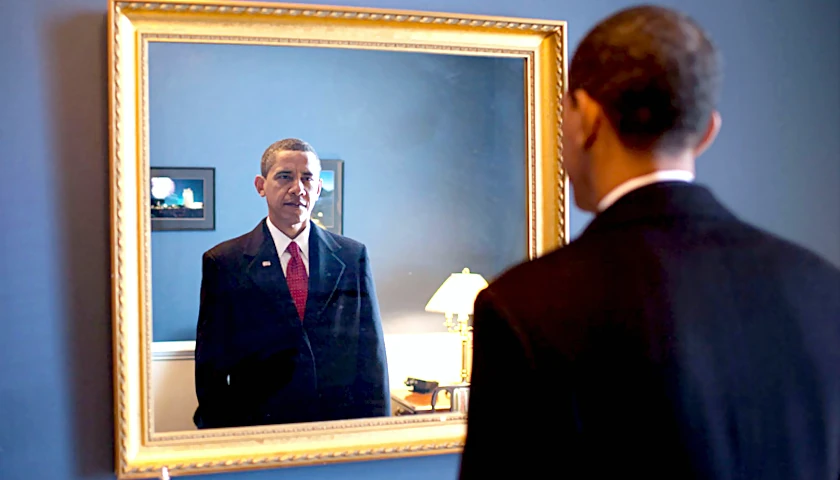by George Rasley
When General Mike Flynn was ousted as President Trump’s National Security Advisor we observed that the President’s national security establishment had just been stripped of Trumpism, and we wondered if – going forward – it would revert to something like that of President George W. Bush – hire Bush’s people get Bush’s wars we opined.
After reviewing the President’s new national security strategy, announced yesterday in a strategy document and speech, perhaps we were too pessimistic in our judgment.
The President offered a clean break with the feckless Obama strategy of appeasing America’s enemies and confusing our allies – and he also offered a clean break with George W. Bush’s “Islam is a religion of peace” folly.
President Trump identified the greatest transnational threats to the homeland as:
Jihadist terrorists, using barbaric cruelty to commit murder, repression, and slavery, and virtual networks to exploit vulnerable populations and inspire and direct plots.
Transnational criminal organizations, tearing apart our communities with drugs and violence and weakening our allies and partners by corrupting democratic institutions.
Most importantly, the Trump alternative to Obama’s open borders and policy of ignoring Iran’s instigation of international terrorism, was presented with robust clarity: target threats at their source and confront threats before they ever reach our borders or cause harm to our people.
It was also encouraging to hear President Trump state as a part of his national security strategy that he would pursue the deployment of a “layered missile defense system to defend America against missile attacks.” This is something we at CHQ have advocated since the 1980s and President Reagan’s High Frontier initiative and we urge Congress to act forthwith to fund the development and deployment of the latest generation of missile defense technologies.
One of the most important parts of the Trump national security strategy – and one that has gotten little recognition in the establishment media’s rush to condemn it as “Islamophobic” was the economic component of the strategy.
Trump made a point in his remarks that President Reagan understood very well and that even Obama’s first Chairman of the Joint Chiefs of Staff Admiral Mike Mullen acknowledged – the economy is one of our most powerful weapons.
As President Reagan defeated the Soviet Union through ruthless economic – military competition, so President Trump vowed to rejuvenate the American economy for the benefit of American workers and companies, and to restore our national power.
Trump also defined a much-needed new defense perimeter by announcing that America will no longer tolerate chronic trade abuses and will pursue free, fair, and reciprocal economic relationships as part of its national security strategy.
Next to President Trump’s acknowledgement that Islam – in the form if its export of jihad is a top national security threat – perhaps the most significant departure from the concepts of the Bush national security strategy was Trump’s silence on nation building and regime change.
While President Trump acknowledged China and Russia as strategic competitors, gone was the soaring rhetoric of George W. Bush’s national security strategy and its implicit commitment to regime change and nation building:
The great struggles of the 20th century between liberty and totalitarianism ended with a decisive victory for the forces of freedom — and a single sustainable model for national success: freedom, democracy and free enterprise.
These values of freedom are right and true for every person, in every society — and the duty of protecting these values against their enemies is the common calling of freedom-loving people across the globe and across the ages.
In its place was this measured and sober recognition that the rest of the world doesn’t have to look like America for Americans to be prosperous and at peace:
My Administration’s National Security Strategy lays out a strategic vision for protecting the American people and preserving our way of life, promoting our prosperity, preserving peace through strength, and advancing American influence in the world. We will pursue this beautiful vision—a world of strong, sovereign, and independent nations, each with its own cultures and dreams, thriving side-by-side in prosperity, freedom, and peace—throughout the upcoming year.
Neocons, the congressional war party, and the military – industrial complex will no doubt be ready to criticize President Trump’s formula of “a world of strong, sovereign, and independent nations, each with its own cultures and dreams, thriving side-by-side in prosperity, freedom, and peace” as a retreat from America’s role in the world – but nothing could be further from the truth.
For most of our history Americans resisted the temptation to impose our culture and our system on the rest of the world at the point of a bayonet – and America and Americans were better off for that restraint.
President Trump’s national security strategy based rebuilding the American economy and pursuing a policy of self-interested partnerships with like-minded states to promote free market economies, private sector growth, political stability, and peace is not a retreat, but a welcome return to the policies that guided America through much of its history and greatest prosperity.
– – –
George Rasley is editor of Richard Viguerie’s ConservativeHQ.com. A veteran of over 300 political campaigns, he served on the staff of Vice President Dan Quayle, as Director of Policy and Communication for Congressman Adam Putnam (FL-12) then Vice Chairman of the Oversight and Government Reform Committee’s Subcommittee on National Security and Foreign Affairs, and as spokesman for Rep. Mac Thornberry now-Chairman of the House Armed Services Committee.





